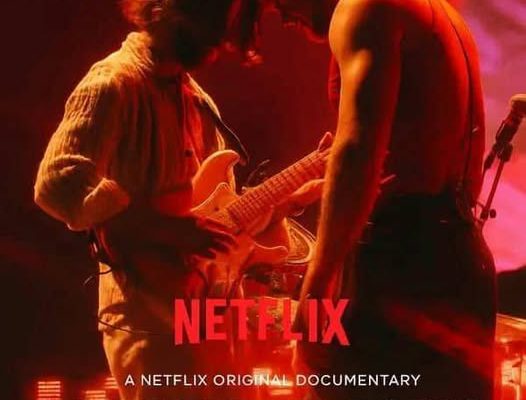The journey of Imagine Dragons is nothing short of extraordinary. What began as a group of earnest young musicians struggling to find their footing has evolved into the story of a band that reshaped modern pop‑rock and pop‑electronic music. Their rise from obscurity to global icon illustrates the power of resilience, reinvention, and the belief that music can both reflect and uplift the human spirit.
In the beginning, the core members—Dan Reynolds (vocals), Wayne Sermon (guitar), Ben McKee (bass), and Daniel Platzman (drums)—came together in Las Vegas after moving away from more modest beginnings They started out without the massive resources, hitting local bars, self‑recording EPs and demos, and learning their craft on small stages. But underlying that was a vision: to write songs that reached widely and deeply, songs that penetrated popular culture.
Their first phase was marked by freedom, experimentation, and sheer determination. During those early years they were writing almost every day—Dan Reynolds later revealed he had been recording songs since age 12 and that when the band’s first full‑length album was in process, anywhere the band went they had to keep writing to ground themselves amid the rapid change. The creative urgency was real: touring, low budgets, long nights, uncertain futures—but also the excitement of possibility. The band grappled with self‑doubt, financial instability, competition and the question of “Can we break out?” The odds were stacked: rock music as a genre was no longer the dominant force it had been, the music business was transformed, streaming was rising, and the challenge was to craft songs that could cut through.
Then came the breakthrough. Their debut studio album, Night Visions (2012), captured the public’s attention. It included the single “Radioactive,” which became a phenomenon: it stayed on the Billboard Hot 100 for record‑breaking weeks and helped the band ascend to international recognition. (Wikipedia) Another song from that album, “Demons,” struck a chord with listeners for its emotional honesty and powerful chorus. The timing was right: the band had found the balance between pop accessibility, rock instrumentation and electronic production in a way that resonated broadly.
What made Imagine Dragons different was their ability to straddle genres without committing strictly to one. Their songs combined guitar‑driven rock riffs, soaring vocals, pounding drums, synths and hooks that felt both familiar and fresh. They leveraged modern production techniques while retaining the emotional weight of rock‑driven songwriting. In doing so, they appealed not just to rock audiences, but to mainstream pop, alternative, and even electronic dance music listeners.
As their visibility increased, so did their ambition. Their second and third albums, such as Smoke + Mirrors (2015) and Evolve (2017), were bold, experimental at times, and commercially very successful. On Evolve they released hits like “Believer,” “Thunder,” and “Whatever It Takes” that dominated charts worldwide.Here, the band embraced the arena‑scale mindset: big choruses, motivating lyrics, dramatic dynamics, and anthemic energy. Audiences were responding.
But behind the success wasn’t just songwriting and touring. Dan Reynolds has openly discussed his own personal struggles: feelings of isolation, depression, questions of faith, and the toll that fame and relentless touring can exact. In an in‑depth profile, he described how during the making of Smoke + Mirrors he was in one of the “worst places in my life.” (NME) That willingness to be emotionally vulnerable lent authenticity to songs like “Demons,” which dealt with inner conflict, and other pieces that touched on mental health or transformation. That human element helped Imagine Dragons transcend being just another rock band—they became a voice for listeners seeking connection.
Simultaneously, Imagine Dragons realized that their role extended beyond just making music: they embraced activism and outreach. They co‑founded the Tyler Robinson Foundation after the story of a young fan with cancer inspired them to act. (trf.org) Their performances, partnerships and messaging created a sense of community and responsibility. It was evident that success meant not just making hits but contributing to something larger than themselves.
By around 2018, Imagine Dragons had not only achieved global stardom but also influenced how rock‑based bands could navigate a streaming‑driven industry. The singles had billions of streams; the band had crossed into mainstream consciousness with songs used in advertising, film trailers, video games. Their ability to write songs that lived beyond radio—songs like “Radioactive” and “Believer” that became gun‑to‑the‑head pop‑culture markers—meant they weren’t just part of the scene, they helped redefine it. Their record for most weeks charting, and their crossover success in the 2010s, cemented their place in music history)
Yet, with all growth come challenges. Critics sometimes pointed out that the band’s sound was so broad it lacked a distinct identity; that the songs were too calibrated for stadium‑pop rather than edgy for rock purists. In fact, a recent article discussed how the band “divides the world” with their massive commercial presence and broad appeal. (El País) But whether embraced or critiqued, the fact remains: they connected. And connection matters. For many fans, Imagine Dragons aren’t just a band—they’re a refuge. One fan wrote:
On the musical front the band never stopped evolving. Their later albums like Origins and the two‑part double album Mercury – Acts 1 & 2 showed a band experimenting with new textures, diverse instrumentation and emotional depth. They also leaned into modern platforms: streaming, sync licensing, tours that engaged global audiences, and multimedia integration. And their 2024 album Loom continues this trajectory, reminding the world they are still relevant, adaptive and ambitious.
What makes their story especially compelling is that they didn’t arrive fully formed—they were forged by failure, by doubt, by the grind of small venues and late‑night writing sessions. The transition from unknown to global icon was not overnight; it was built on consistency, reinvention, listening to the times, embracing change, and writing songs that could both dominate pop radio and feel deeply personal. Their impact extends beyond just album sales or chart records; their influence lies in demonstrating how rock‑inflected music can still thrive in a digital, streaming era.
For artists in Nigeria, in Africa, or anywhere, the lesson stands: it’s not enough to be talented. Success comes when skill meets strategy, emotion meets craft, and authenticity meets connection. Imagine Dragons’ story shows that you can start small, stay true to your message, and scale up in a meaningful way.
If you like, I can pull together a detailed timeline of their albums, tours, and key turning points (including how they impacted modern music globally) for a deeper dive. Would you like that?



